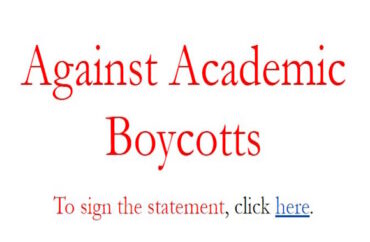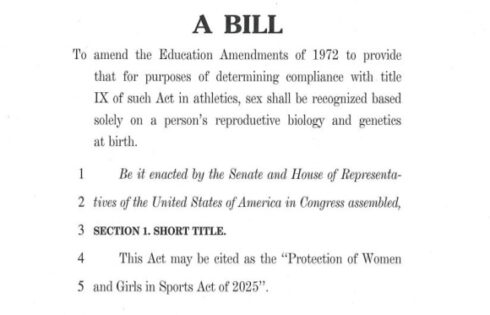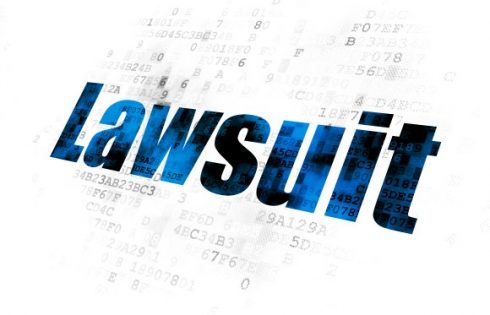
An open letter that opposes the American Association of University Professors’ new position to support academic boycotts quickly gained over 1,000 signatures from scholars and faculty upset by the recent decision.
“We believe the AAUP’s new position is wrong-headed and dangerous,” the petition states. “We cannot safeguard academic freedom by violating academic freedom. Normalizing academic boycotts poses a profound threat to academic freedom.”
The protest comes after the AAUP, a left-leaning faculty union, announced Aug. 9 that it would support academic boycotts despite its previous position, held since 2005, that stated “the search for truth and its free expression suffer if a boycott is in place.”
The long-held position also stated such boycotts threaten “the principles of free expression and communication on which we collectively depend.”
Chemistry Professor Anna Krylov, University of Southern California’s associate chair in natural sciences, wrote on her Substack that the American Association of University Professors was “once a venerable organization,” but it “has been steadily moving towards a radical agenda, abandoning its noble mission of advancing academic freedom.”
She told The College Fix academic boycotts treat individuals “as representative of certain groups rather than free agents responsible for their own deeds.”
They “represent an unacceptable intrusion of politics and partisanship into science. Beyond science, academic boycotts are divisive and contribute to increased polarization and intolerance,” Krylov said via email.
Are you a professor? If so, consider signing the petition against the American Association of University Professors’ recent about-face, in which they cravenly declare that academic boycotts are OK after all. https://t.co/BsbEn122SY
— Steven Pinker (@sapinker) August 15, 2024
Academic boycotts are often linked to a larger movement called Boycott, Divestment, and Sanctions, which organizes actions against Israel. BDS argued in an Aug. 12 statement that AAUP’s past opposition to academic boycotts was “racist” and applauded its reversal.
The faculty group’s new statement argues boycotts “can be considered legitimate tactical responses to conditions that are fundamentally incompatible with the mission of higher education.” It adds the “position opposing academic boycotts has been controversial.”
“Academic boycotts are not in themselves violations of academic freedom,” it reads.
The statement does not specify if recent pro-Palestinian encampments and BDS efforts on college campuses prompted the organization’s changed stance.
AAUP president and Rutgers University Professor Todd Wolfson is outspoken about his support of the Palestinian cause.
On Aug. 3, he tweeted that the college encampments on universities were “peaceful protests.” He also retweeted a video of Netanyahu addressing Congress with and replied, “WAR CRIMINAL.”
Wolfson did not respond to The College Fix’s request for comment.
In the two weeks since the AAUP’s decision, over 1,000 professors and university faculty have signed the open letter titled “Against Academic Boycotts.”
It states academic boycotts “must be opposed” because they are “in deep tension with the basic animating spirit and values of the academy,” and because they “punish individual scholars for the alleged misbehavior of their government and/or of their academic institutions.”
“The AAUP does not speak for us. We call on our fellow scholars to join us in opposing boycotts of fellow scholars wherever they might reside and be employed,” the letter reads.
The Academic Engagement Network also responded to AAUP’s new statement with “profound dismay.”
“(F)or nearly twenty years the AAUP has rightly held firm to the view that academic boycotts are contrary to its mission of protecting the academy as a forum for free scholarly inquiry,” the organization stated. “Academic boycotts inevitably – and inequitably – harm scholars.”
But others are pleased with the turn of events, such as the Council on American-Islamic Relations, or CAIR, a Muslim civil rights group.
“While the Israeli government is not mentioned in the statement, observers say the change in policy was likely prompted in part by the Israeli’s government ongoing genocide in Gaza,” said CAIR in a news release.
MORE: MIT union ignored Jewish members’ objection to Israel boycott: federal complaint
IMAGE: Against Academic Boycotts website screenshot
Like The College Fix on Facebook / Follow us on Twitter






Please join the conversation about our stories on Facebook, Twitter, Instagram, Reddit, MeWe, Rumble, Gab, Minds and Gettr.